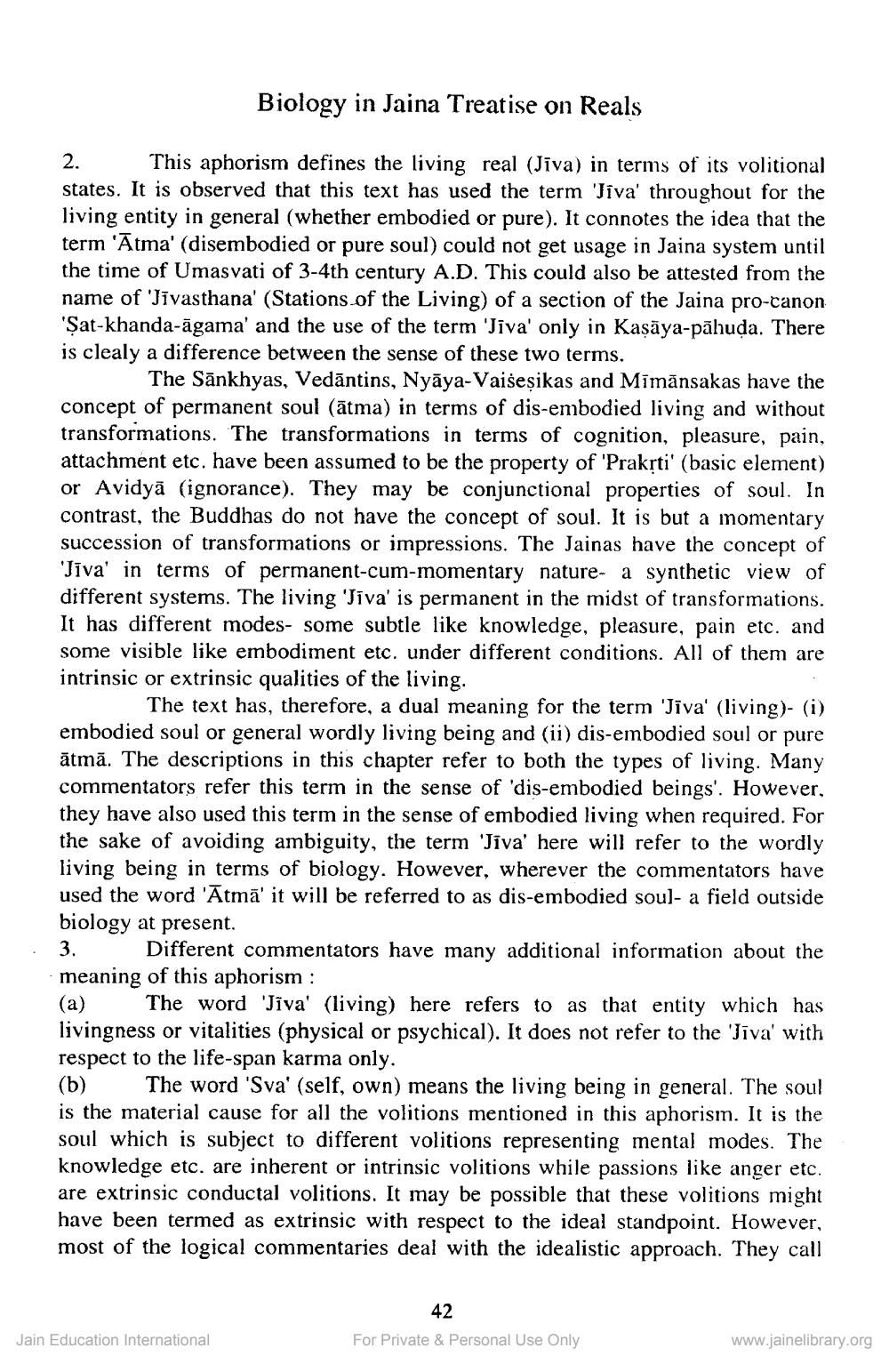________________
Biology in Jaina Treatise on Reals
This aphorism defines the living real (Jiva) in terms of its volitional states. It is observed that this text has used the term 'Jiva' throughout for the living entity in general (whether embodied or pure). It connotes the idea that the term 'Ātma' (disembodied or pure soul) could not get usage in Jaina system until the time of Umasvati of 3-4th century A.D. This could also be attested from the name of 'Jīvasthana' (Stations of the Living) of a section of the Jaina pro-canon 'Şat-khanda-āgama' and the use of the term 'Jiva' only in Kasaya-pāhuda. There is clealy a difference between the sense of these two terms.
The Sānkhyas, Vedāntins, Nyāya-Vaišeşikas and Mimānsakas have the concept of permanent soul (ātma) in terms of dis-embodied living and without transformations. The transformations in terms of cognition, pleasure, pain, attachment etc. have been assumed to be the property of 'Prakrti' (basic element) or Avidyā (ignorance). They may be conjunctional properties of soul. In contrast, the Buddhas do not have the concept of soul. It is but a momentary succession of transformations or impressions. The Jainas have the concept of 'Jiva' in terms of permanent-cum-momentary nature- a synthetic view of different systems. The living 'Jiva' is permanent in the midst of transformations. It has different modes- some subtle like knowledge, pleasure, pain etc. and some visible like embodiment etc. under different conditions. All of them are intrinsic or extrinsic qualities of the living
The text has, therefore, a dual meaning for the term 'Jiva' (living)- (i) embodied soul or general wordly living being and (ii) dis-embodied soul or pure ātmā. The descriptions in this chapter refer to both the types of living. Many commentators refer this term in the sense of 'dis-embodied beings'. However, they have also used this term in the sense of embodied living when required. For the sake of avoiding ambiguity, the term 'Jiva' here will refer to the wordly living being in terms of biology. However, wherever the commentators have used the word 'ātmā' it will be referred to as dis-embodied soul- a field outside biology at present.
Different commentators have many additional information about the meaning of this aphorism:
The word 'Jiva' (living) here refers to as that entity which has livingness or vitalities (physical or psychical). It does not refer to the 'Jiva' with respect to the life-span karma only. (b) The word 'Sva' (self, own) means the living being in general. The soul is the material cause for all the volitions mentioned in this aphorism. It is the soul which is subject to different volitions representing mental modes. The knowledge etc. are inherent or intrinsic volitions while passions like anger etc. are extrinsic conductal volitions. It may be possible that these volitions might have been termed as extrinsic with respect to the ideal standpoint. However, most of the logical commentaries deal with the idealistic approach. They call
42 For Private & Personal Use Only
Jain Education International
www.jainelibrary.org




